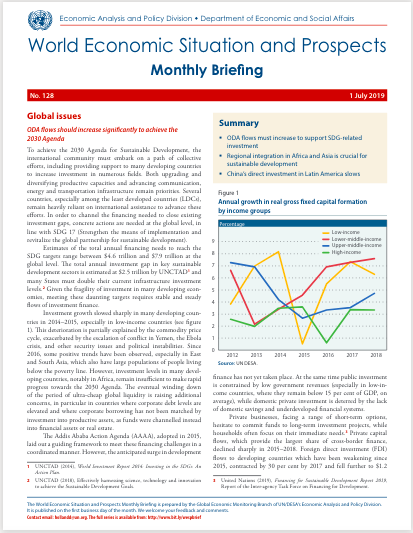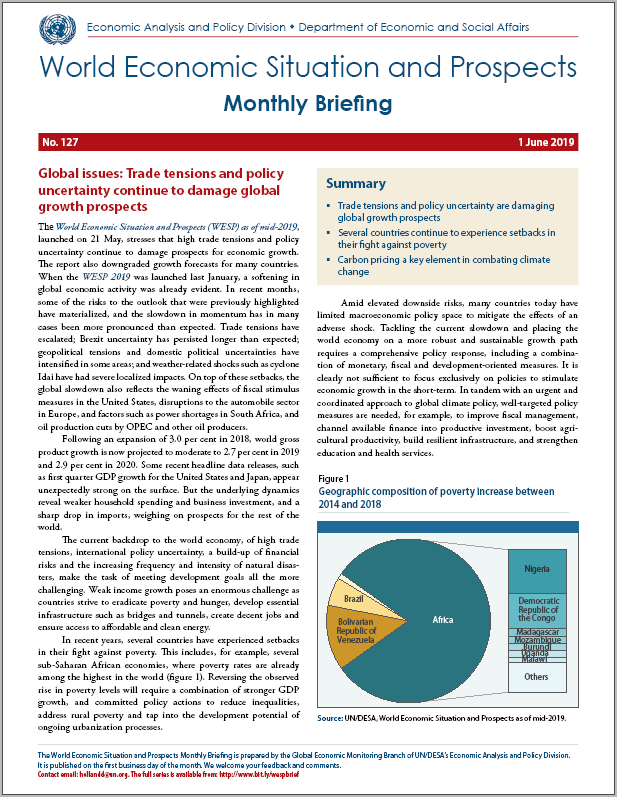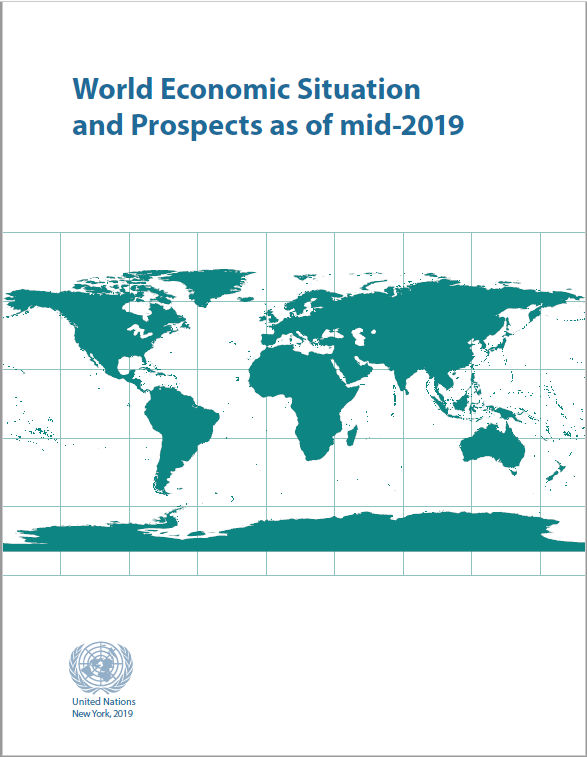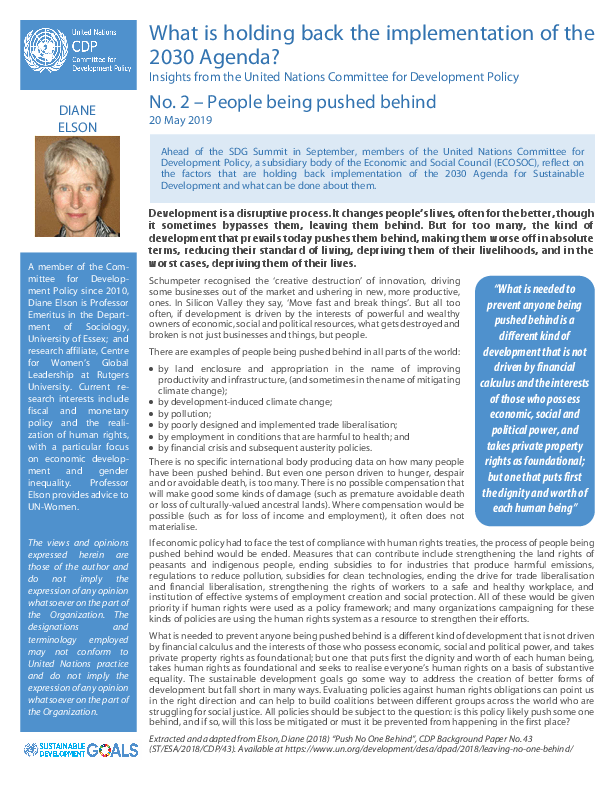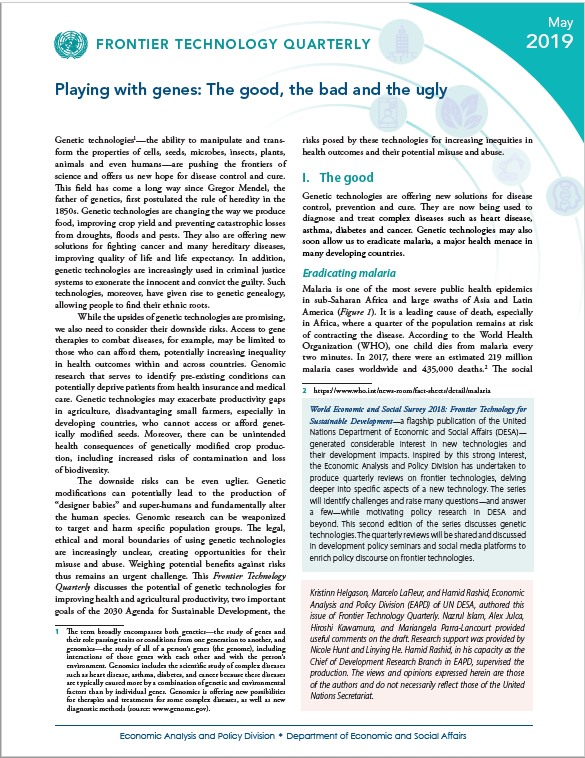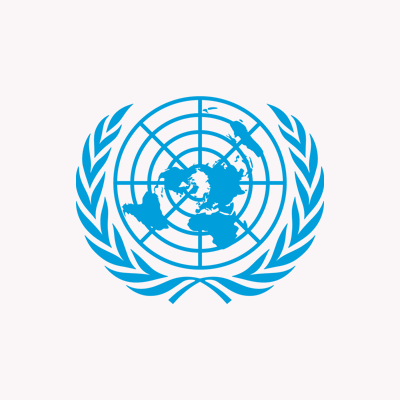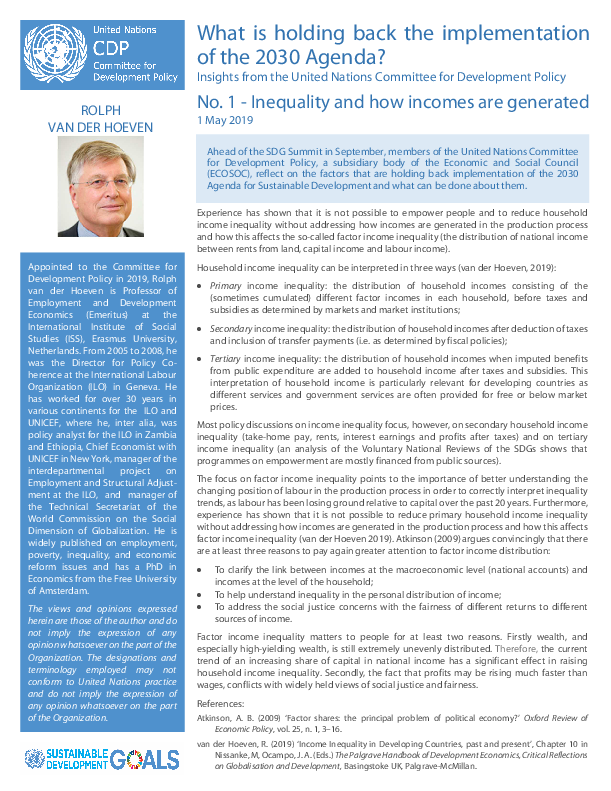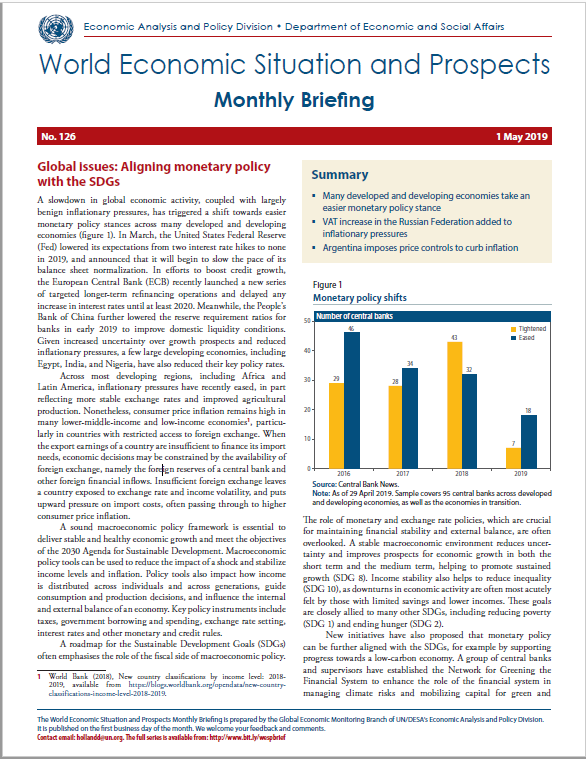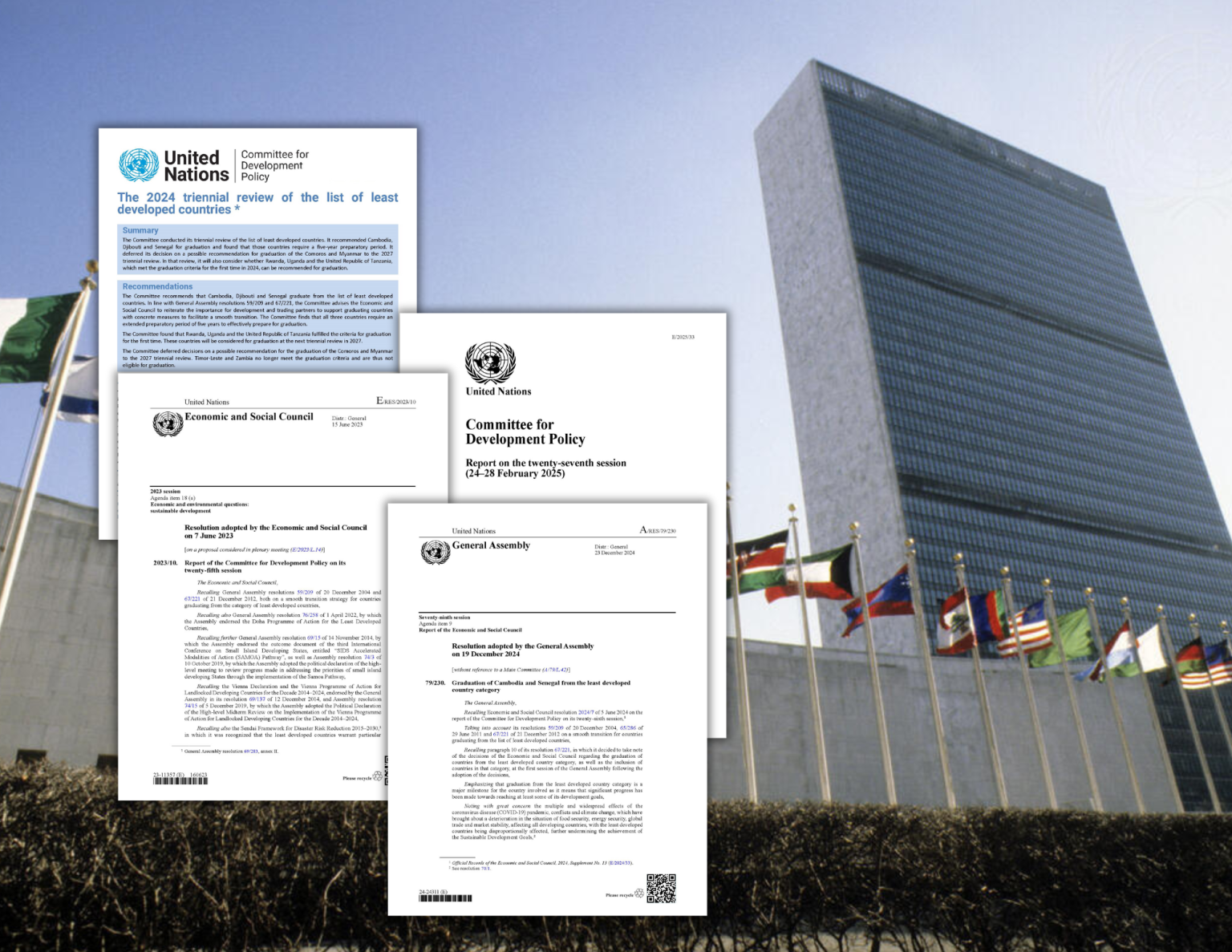Publications
Displaying 21 - 30 of 42
Several countries continue to experience setbacks in their fight against poverty
Carbon pricing a key element in combating climate change
VAT increase in the Russian Federation temporarily adds to inflation
Argentina imposes price controls to curb inflation
عربي, 中文, English, Français, Русский, Español CDP excerpts on the report by theme Empowering people and ensuring inclusiveness and equality
 Welcome to the United Nations
Welcome to the United Nations
